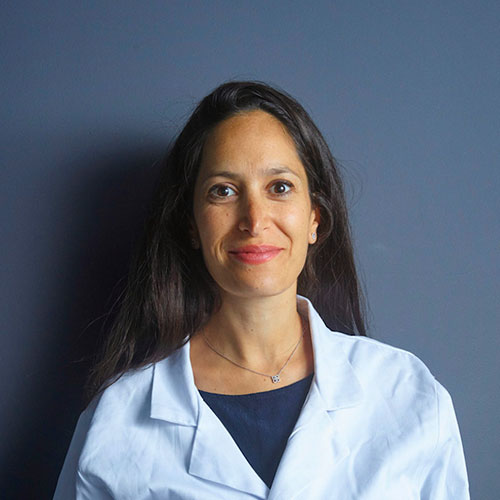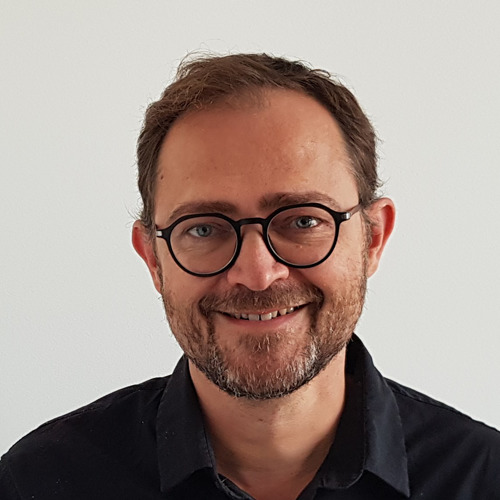The hepatogastroenterology service provides care for conditions of:
- the digestive tract (esophagus, stomach, colon, small intestine),
- the biliary tract, pancreas and liver,
- the anus and rectum
The group includes a dozen doctors, physicians qualified in general gastroenterology and highly specialized physicians in hepatology, inflammatory intestinal disease, proctology, etc. Care for chronic inflammatory disease is provided by endoscopy associated with different imaging technique and the latest generation treatment (outpatient anti-TNF infusion). Medical and surgical proctology treatment: hemorrhoids, anal fistula, anal fistula and abscess. Diagnosis, treatment and follow-up for liver diseases are provided by specialized gastroenterologists using a wide range of imaging techniques and histological diagnosis.
Interdepartmental collaboration
Gastroenterology is a huge field at the intersection of a large number of other specialties. Our gastroenterologists collaborate on a daily basis with most of the other departments in the facility.
- Collaboration with oncologists for screening and diagnosing gastrointestinal cancers, assessing the extent of disease and delivering treatments (interventional endoscopy), with active participation in the discussion of oncology cases during Multidisciplinary Team Meetings (MTMs)
- Collaboration with surgeons for surgical treatments of gastrointestinal diseases.
- Collaboration with cardiologists and other specialists to treat digestive aspects of a wide range of conditions
- Participation in multidisciplinary care for problems associated with some cases of severe obesity.
Team
- A very high level diagnostic and interventional endoscopy center: latest generation endoscopes, interventional radiology table, super high performance sterilization equipment, specialized nursing staff.
- Technical platform enabling the performance of a wide range of supplementary exams: specific biological levels, imaging exams (MRI, CT scan, etc.).
- Small intestine exploration via video capsule endoscopy.
- A high-quality outpatient department fulfilling the most up to date criteria for outpatient visits that provides endoscopies under anesthesia.
- Provides care for gastrointestinal emergencies and acute endoscopies 24 hours a day and 7 days a week.
Diagnostic gastrointestinal endoscopy
All gastrointestinal endoscopies required for establishing a diagnosis can be performed on site, at the Endoscopy Center that was built in 2013 and is located at the Hartmann Clinic. In the event of an emergency at the Ambroise Paré Clinic, the endoscopic exam is performed in the resuscitation department. The diagnostic endoscopy procedures that are performed include:
- Classic endoscopy examinations
Esophageogastroduodenoscopy for exploring the esophagus, stomach and beginning of the small intestine (duodenum).
Coloscopy for exploring the colon and the end of the small intestine (ileum)
- Today, video capsule exploration of the small intestine may also be offered to patients; this technique does not require anesthesia or hospitalization. It is indicated in the event of unexplained hemorrhage and/or Crohn’s disease.
- Endoscopic ultrasound
This technique combines endoscopy and ultrasound exam using an endoscope attached to an ultrasound probe close to the organ that is being studied. Endoscopic ultrasound is an extremely powerful exam for diagnosing lesions of the digestive tract or stones, cysts or tumors in the biliary tract or pancreas. It also allows biopsied tissue samples to be studied under a microscope.
Interventional gastrointestinal endoscopy
Due to our latest generation equipment, the endoscopy center can perform many interventional endoscopy procedures. Interventional endoscopy can be used to treat a wide range of hepatogastrointestinal conditions without surgery and as short outpatient procedures.
Interventional endoscopy procedures performed at the Endoscopy Center
- Polyp ablation.
- Ablation of superficial colon, esophagus and stomach cancers.
- Ablation of precancerous lesions.
- Interventional endoscopy:
- Determining how far a cancer has spread by pancreatic and lymph node biopsy.
- Biliary and pancreatic; catheterization of the biliary tract - endoscopic prosthesis placement, endoscopic sphincterotomy: removing biliary or pancreatic stones by natural pathways.
- Treatment of gastrointestinal hemorrhages: clip-ligation-band ligation of esophageal varices.
- Endoscopic placement of an intra-gastric balloon to manage obesity (specific indications).
One of the fundamental aspects of the care that we provide is screening for gastrointestinal cancer.
Colon cancer screening
Colon cancer screening is recommended by European and American scientific societies. It should be performed for everyone over the age of 50 with no risk factors and starting at 45 for individuals with a family history.
Colon cancer screening in individuals with no risk factors
This is performed for individual aged 50 to 74 to screen for and treat precancerous lesions called adenomatous polyps. Colonoscopy is the standard technique used for optimal screening for precancerous lesions of the colon. In patients with specific risk factors, if a polyp is found during colonoscopy, it is removed by the gastroenterologist, and monitoring by colonoscopy will be recommended at a frequency corresponding to the type and number of polyps that were removed.
- In the event of a positive Hemoccult test performed during screening covered by health insurance, colonoscopy is indicated to diagnose and treat precancerous polyp lesions.
Colon cancer screening in at-risk patients
This primarily involves individuals who have a first degree relative with colon cancer (parent, sibling); it is therefore recommended in the large majority of cases beginning at age 45. For individuals with a parent who had colon cancer at a very young age, screening should begin at an age that corresponds to 10 years before the age of the parent when the cancer was found. Today, colonoscopy is the only test recommended for this screening. The endoscopy Center has powerful endoscopes equipped with an imaging treatment system enabling better sensitivity for screening small lesions or flat lesions, known as “Narrow Band Imaging” (NBI), which has been shown to be effective in monitoring precancerous lesions that may arise in patients with Chronic Inflammatory Diseases (CID).







